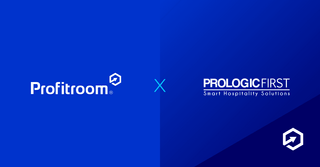Hotel receptionist – how to optimize and automate their work
Date
15.09.24
Type
Articles
Category
Management ,
Tools

The role of a hotel receptionist is dynamic, demanding, and essential to delivering a seamless guest experience. From managing bookings and welcoming guests to handling enquiries, receptionists perform a range of tasks that can be optimised to boost productivity and efficiency. With the advent of hotel automation and hotel automation software, hotels can streamline these responsibilities, freeing receptionists to focus on more guest-centric tasks. Here’s how hotels can harness automation to optimise receptionist duties, improve efficiency, and elevate guest satisfaction.
Automating routine tasks with hotel automation software
Hotel automation software is revolutionising front desk operations. A centralised property management system (PMS) allows receptionists to handle reservations, billing, and check-ins in one place, minimising manual data entry and errors. When this PMS is integrated with a channel manager, availability and rates can be updated in real-time across all booking platforms, reducing the chance of overbookings and ensuring guests always have accurate information.
Automated messaging is another key feature of hotel automation software. With it, guests automatically receive booking confirmations, pre-arrival information, and post-stay surveys. This automation frees up time for receptionists to focus on face-to-face interactions. Internally, automated reminders for special guest requests or room status updates streamline communication between teams, enhancing service efficiency.
Implementing self-service check-in and check-out kiosks
Self-service kiosks are a popular feature in hotel automation, enabling guests to handle their own check-ins and check-outs quickly and efficiently. By reducing congestion at the front desk, kiosks allow receptionists to devote more attention to other tasks and to delivering a personal touch to guest interactions.
Self-service check-in systems can even be personalised, offering specific messages or room upgrades based on the guest’s history or profile. For hotels, this adds value and encourages loyalty, helping create a memorable and tech-enhanced stay.
Using digital concierge services for guest enquiries
Receptionists are often tasked with answering a wide range of guest enquiries, from local dining recommendations to transportation information. By offering a digital concierge service through hotel automation software, hotels can provide guests with instant, 24/7 access to information and recommendations, reducing the volume of repetitive enquiries at the front desk.
Guests can access maps, FAQs, and more via the hotel’s app or website, ensuring they always have information readily available. This digital concierge is an effective component of hotel automation that enhances the guest experience while optimising receptionist workloads.
Smart task allocation with AI-driven hotel automation tools
Through AI-driven hotel automation tools, receptionists can manage their duties more effectively based on real-time data. AI tools can automatically assign tasks to receptionists based on their availability and skills, ensuring that each task, including guest follow-ups, is handled promptly. This strategic use of hotel automation reduces bottlenecks and keeps the front desk running smoothly.
Enhancing communication with mobile channels
Hotel automation software that includes mobile communication options, such as WhatsApp, SMS, and in-app messaging, enables receptionists to assist guests without face-to-face interaction. Automated responses can handle standard enquiries, while personalised messages can be sent for more specific guest needs. This not only increases flexibility but also aligns with the modern traveller’s preference for on-the-go assistance.
Tracking and analysing gront desk performance metrics
Tracking key performance indicators (KPIs) with hotel automation tools helps hotels identify areas for improvement in front desk operations. KPIs such as average check-in and check-out times, guest satisfaction scores, and the volume of enquiries handled can highlight processes that could benefit from further automation, enhancing both efficiency and guest experience.
Prioritising data security with automation
Implementing hotel automation also requires a strong focus on data security. By using secure systems that comply with data protection regulations, hotels can ensure that all guest information is stored, processed, and managed safely. A reputable hotel automation software solution will offer built-in security protocols that help safeguard data, building trust with guests and meeting compliance standards.
Conclusion
Hotel automation and hotel automation software empower hotels to transform the role of their reception teams. By automating routine tasks, integrating self-service options, and leveraging digital tools, hotels can create a more efficient, guest-centric front desk environment. This approach not only simplifies the receptionist’s role but also supports a higher level of service, helping hotels boost guest loyalty and increase direct bookings. As hotel automation continues to evolve, investing in the right software will become essential to modernising operations and delivering a standout guest experience.


